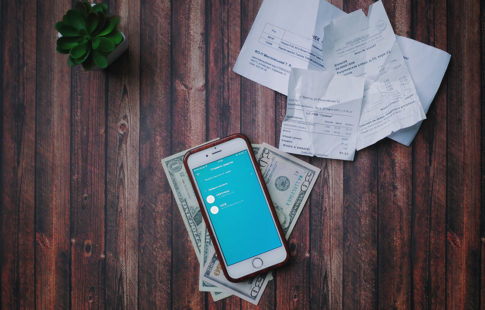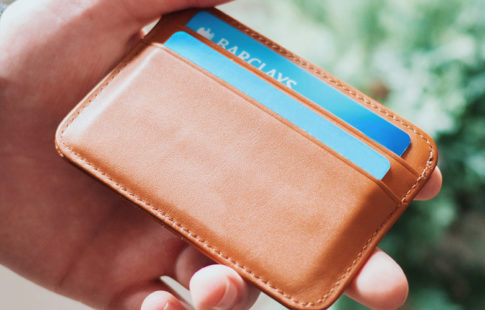Home values have risen considerably in recent times. According to the National Association of REALTORS®, single-family homes’ median sales price jumped 16% in November 2021 compared to a year earlier. That worked out to a median increase of $50,300. Believe it or not, if you’ve owned your home for more than a few years, it’s likely you’ve built up significant equity and a cash-out refinance could allow you to access it as cash. Homeowners have taken advantage of these refinances for a variety of goals, projects, and life events. If you’re wondering “is a cash-out refinance a good idea,” here are a few scenarios when it may be a win.
1. You have high-interest debt
A cash-out refinance offers the chance to consolidate high-interest, non-mortgage debt—like credit card debt—into your mortgage and pay it off at a lower rate. With consumer debt at an all-time high as of 2021, it can be a good strategy to help make debt more manageable.
That’s because cash-out refinances (also called consolidation loans) may allow you to pay off debts at a lower interest rate. For example, the average credit card interest rate tracked by the Federal Reserve was 14.51% in November 2021. In comparison, the average 30-year fixed mortgage rate ranged between about 3–4%, according to Freddie Mac. That means a homeowner could have potentially rolled their credit card debt into their mortgage and paid that debt off at a much lower rate. Note: Cash-out refinance rates are usually slightly higher than rates for other mortgage refinances.
2. You want to lower your monthly expenses
Another reason a cash-out refinance can be a good idea is to potentially lower your overall monthly debt payments. Let’s say Daniel has $15,000 in student-loan debt that requires a minimum monthly payment of $300. Because he also has $100,000 in equity in his home, Daniel finds he can save money each month with a debt-consolidation refinance. Refinancing establishes new loan terms (e.g., a new mortgage term or rate) that increase Daniel’s mortgage payment by $10 each month and gives him $15,000 in cash to repay the student loan debt in its entirety.
All told, the new loan will save him a total of $290 per month. That’s because Daniel eliminated the $300 student loan payment, while only increasing his mortgage payment by $10 ($300 – $10 = $290).
Note: A cash-out refinance can also result in a higher mortgage payment depending on how you structure your loan. Check out our cash-out refinance calculator for an idea of how a cash-out refinance could work out for you.
3. You want to reduce the number of bills you pay each month
Using a cash-out refinance for debt consolidation isn’t just about saving money. It’s also about simplifying your finances and making your monthly payments easier to manage. By consolidating debt with a refinance, you could replace non-mortgage payments like a student loan, credit card debt, and vehicle loans with a single monthly mortgage payment. With fewer payments, keeping track of due dates and making payments may become less complicated. Plus, having fewer accounts can make tracking your finances and budgeting easier.
4. You want to improve your credit score
Are consolidation loans worth it if you want to improve your credit score? Yes, if you use yours to eliminate debt, it can boost your credit score since debt is a key factor. As an added bonus, a cash-out refinance can be worth it if you apply for a new loan in the future. A higher credit score may help you save on that, too.
5. You need money for a home improvement, business, or big expense
A lump sum of cash from a cash-out refinance can fund almost anything.This includes renovations—new decks, kitchen upgrades, and even full additions—as well as consumer items like new vehicles.
Do your research to determine the best use of the cash, however. Bear in mind that a typical mortgage has a 15- or 30-year term whereas many consumer items, like a car, have a shorter life. That means you’ll want to be sure what your overall cost is once you add in the interest you’ll pay over time compared to what you would have paid otherwise.
Depending on your finances, there could be other reasons why a cash-out refinance is a good idea. You might find it easier than getting other kinds of loans. For example, if you’re starting a business, funds from a cash-out refinance could be an alternative to a business loan.
If you’re interested in learning more about whether a cash-out refinance is a good idea for you, Mr. Cooper can help. Call us or get started online to discuss your options with one of the best cash-out refinance lenders around.
A cash‐out refinance increases your mortgage debt and reduces the equity you may have in your home. Your monthly mortgage payments may be higher.
Tradenames and trademarks used in this blog post are the property of their respective owners. Nationstar Mortgage LLC d/b/a Mr. Cooper is not affiliated, associated, or sponsored by any of these owners. Use of these names and trademarks is not intended to and does not imply endorsement, but is for identification purposes only. Information provided does not necessarily represent the views of Mr. Cooper. Information is subject to change without notice.







